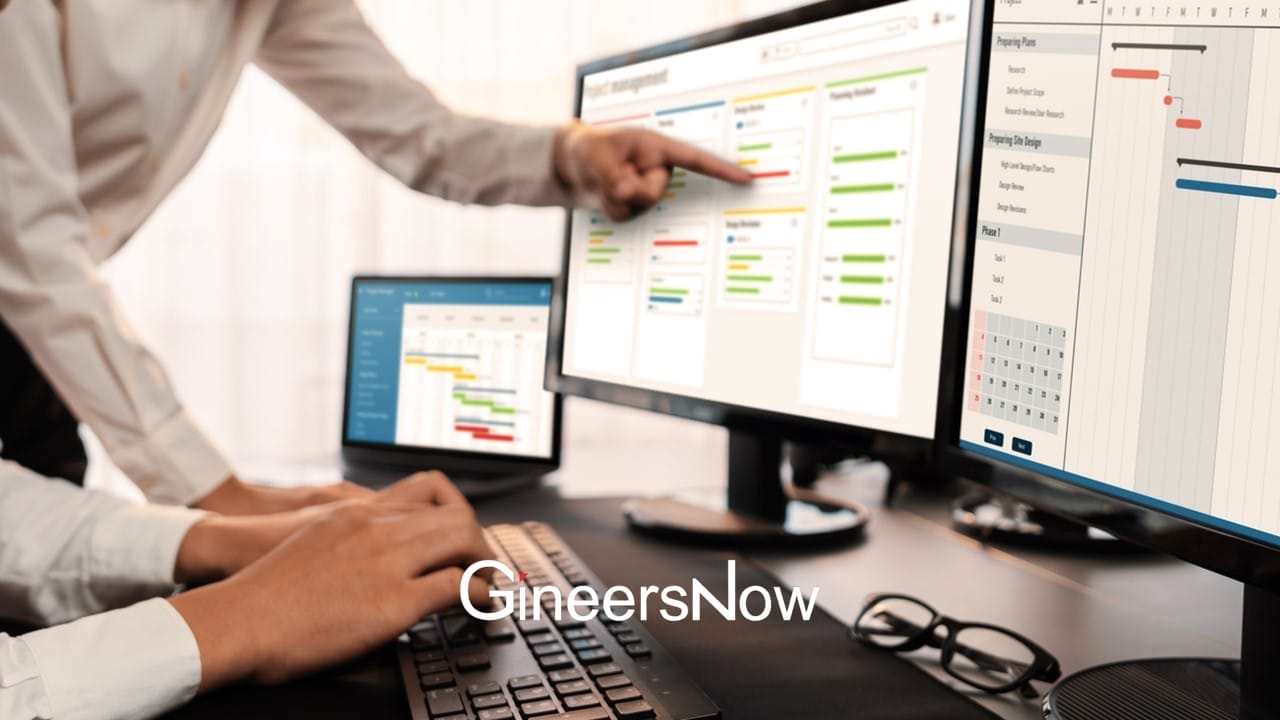Preparing for the electrical engineering board exam in the Philippines requires a strategic approach to studying. One crucial study habit is to create a detailed study schedule that allocates dedicated time for each subject covered in the exam. By breaking down the vast amount of material into manageable chunks, you can cover all essential topics thoroughly. Additionally, practicing past exam questions is vital for familiarizing yourself with the exam format and honing your problem-solving skills specific to the electrical engineering board exam.
Another effective study habit for acing the electrical engineer’s board exam is to form study groups with fellow candidates. Collaborating with peers allows you to discuss complex concepts, clarify doubts, and learn from each other’s perspectives. Sharing study resources and teaching strategies can enhance your understanding of difficult topics and boost your overall preparation for the electrical engineering board exam.
Do Students Need Study Habits to Pass the Electrical Engineering Board Exam in the Philippines?
Effective study habits are crucial for students aiming to pass the Electrical Engineering Board Exam in the Philippines. The exam covers many topics and requires a deep understanding of complex electrical concepts and principles. By establishing good study habits, such as creating a study schedule, setting specific goals, and practicing consistently, students can better prepare themselves for the challenges posed by the electrical engineer’s board exam.
In addition to regular studying, incorporating review sessions, taking practice exams, and seeking help from instructors or study groups can further enhance a student’s preparation for the electrical engineering board exam. Strong study habits improve knowledge retention, boost confidence, and reduce test anxiety, ultimately increasing the likelihood of passing the rigorous exam and obtaining an electrical engineering license in the Philippines.
What are the Study Habits of Filipino Students Who Want to Pass the Electrical Engineering Board Exam?
Filipino students aiming to pass the Electrical Engineering Board Exam often employ specific study habits to enhance their chances of success. These study habits play a crucial role in preparing for the rigorous examination that tests their knowledge and skills in electrical engineering.

Key study habits of Filipino students preparing for the electrical engineering board exam include:
1. Establish a Study Schedule
To effectively prepare for the electrical engineering board exam, it is crucial to establish a well-structured study schedule that allocates specific time slots for each subject. Begin by dividing your study sessions into manageable blocks, focusing on core subjects such as circuit analysis, electromagnetics, power systems, and electronics. Allocate more time to challenging topics while revisiting fundamental concepts to ensure a comprehensive understanding. By following a consistent routine, you can maintain productivity and avoid the stress of last-minute cramming, allowing for better information retention and improved exam performance.
Consider dedicating mornings to in-depth study sessions on technical subjects, followed by practical application exercises in the afternoon. Reserve evenings for reviewing notes, solving practice problems, and engaging in group discussions or online forums to clarify doubts. Remember to incorporate short breaks between study sessions to stay refreshed and focused. By adhering to this structured study schedule, you can effectively prepare for the electrical engineering board exam and approach the test with confidence and readiness.
2. Use Active Learning Techniques
You must employ active learning techniques throughout your preparation to excel in the electrical engineering board exam. Engaging in practice problems solidifies your understanding of key concepts and hone your problem-solving skills, essential for efficiently tackling exam questions. Group discussions provide a platform for sharing knowledge, gaining different perspectives, and collectively exploring complex topics. Teaching concepts to others is a powerful method to reinforce your understanding, as it requires you to articulate ideas clearly and address potential misconceptions. Additionally, actively participating in review sessions and seeking clarification on challenging topics from instructors or peers can help fill any knowledge gaps and boost your confidence before the electrical engineer’s board exam.
By incorporating active learning methods into your study routine for the electrical engineering board exam, you are enhancing your retention of information and building a strong foundation for long-term success in the field. Embracing a proactive approach to learning through these techniques fosters critical thinking, problem-solving abilities, and effective communication skills. Remember, the journey to mastering electrical engineering concepts and taking the board exam is not just about passive absorption of information but about actively engaging with the material and nurturing a deep understanding that will serve you well in your future career endeavors.
3. Use Resources Wisely
Preparing for the electrical engineering board exam requires a comprehensive approach involving utilizing various resources. Textbooks serve as foundational materials to build a strong understanding of key concepts and theories in the field. Online resources, such as practice exams and video tutorials, can provide additional support and help reinforce your knowledge base. Review materials, such as flashcards and study guides, can be valuable tools to aid in memorizing and retaining important information. Attending review classes or seminars led by experienced instructors can offer valuable insights and strategies for approaching the exam effectively. Combining these resources and engaging in review sessions can enhance your readiness and confidence for the electrical engineering licensure board exam.
In the lead-up to the electrical engineering board exam, making the most of the resources available to you is crucial. Textbooks, online resources, and review materials can all significantly deepen your understanding of the exam topics and improve your overall preparedness. Attending review classes or seminars can provide a unique opportunity to interact with knowledgeable instructors who can guide you through challenging questions and topics. By effectively leveraging these diverse resources, you can enhance your chances of success on the electrical engineering licensure board exam and feel more confident in tackling the exam questions with clarity and precision.
4. Practice Time Management
To excel in the electrical engineering board exam, it is crucial to master time management skills. Allocating sufficient study time for each subject is essential to cover all the topics thoroughly. By creating a study schedule and sticking to it diligently, you can ensure that you dedicate the necessary time to understand complex concepts and solve practice problems effectively. Utilizing study aids such as timers or productivity apps can help you stay focused and on track during your study sessions, preventing distractions and maximizing your learning efficiency. With a disciplined approach to time management, you can effectively prepare for the electrical engineering licensure board exam and boost your chances of success.
Furthermore, integrating effective time management strategies into your study routine can enhance your overall electrical engineering board exam performance. By setting specific study goals for each session and monitoring your progress regularly, you can track your development and adjust as needed to stay on target. Implementing techniques like the Pomodoro method, where you work in short, focused bursts with regular breaks, can improve your concentration and retention of key information. Remember, efficient time management is not just about studying harder but studying smarter, making the most of your study time to grasp the intricacies of electrical engineering concepts and excel in the board exam.
5. Take Regular Breaks
Studying for the electrical engineering board exam can be mentally taxing, so it’s crucial to incorporate regular breaks into your study routine. Taking short breaks not only prevents burnout but also enhances focus and retention of information. Consider setting a timer to remind yourself to take a quick break every hour. During these breaks, engage in physical activities like stretching or walking to get your blood flowing and recharge your mind. Alternatively, you can practice relaxation techniques such as deep breathing or meditation to help alleviate stress and improve concentration.
Remember that self-care is essential to effectively studying for the electrical engineering board exam. By prioritizing regular breaks and incorporating physical activities or relaxation techniques into your study sessions, you can maintain a healthy balance and optimize your learning experience. Taking care of your well-being enhances your ability to absorb and retain information and boosts your overall performance on exam day.
6. Prioritize Self-Care
Prioritizing self-care is essential, especially during high stress, such as preparing for the electrical engineering board exam. By maintaining a healthy lifestyle, including getting adequate sleep, eating nutritious meals, and staying hydrated, you can ensure that your body and mind are in optimal condition for studying and taking the exam. Adequate sleep is crucial for memory consolidation and cognitive function, vital for success in challenging exams like the electrical engineer’s board exam. Additionally, eating nutritious meals and staying hydrated provide the energy and focus needed to study effectively and perform well during the exam.
Incorporating regular exercise into your routine can also greatly benefit your preparation for the electrical engineering board exam. Exercise reduces stress levels, improves mood, and enhances overall well-being. Engaging in physical activity can help clear your mind, boost your energy levels, and increase your ability to concentrate during study sessions. You can successfully tackle the electrical engineer’s board exam with confidence and resilience by prioritizing self-care practices such as adequate sleep, healthy eating, hydration, and regular exercise.
7. Test Your Knowledge
Preparing for the electrical engineering board exam requires a diligent approach to testing one’s knowledge and understanding of key concepts. Regular practice exams and quizzes are valuable tools for assessing one’s grasp of the material and identifying areas that may need further reinforcement. By consistently challenging themselves with practice tests, individuals can pinpoint their weaknesses and focus on strengthening those specific topics to enhance their overall knowledge and readiness for the electrical engineer’s board exam.
Reviewing and analyzing the results of practice exams can provide valuable insights into one’s preparedness for the electrical engineering board exam. Individuals can significantly improve their understanding and retention of essential concepts by identifying weak areas and dedicating focused study time to those topics. This targeted approach helps boost confidence and ensures a more comprehensive preparation for the electrical engineer’s board exam, ultimately increasing the chances of success on exam day.
8. Seek Support from Peers and Mentors
Forming study groups with peers can be highly beneficial when preparing for the electrical engineering board exam. By sharing resources, discussing challenging topics, and offering mutual support, you can enhance your understanding of key concepts and improve your overall preparation. Collaborating with fellow aspiring engineers not only provides a platform for exchanging knowledge but also fosters a sense of camaraderie and motivation during the intense exam preparation period. Additionally, seeking guidance from experienced mentors or professionals in the field can offer valuable insights and advice to help you navigate the complexities of the electrical engineer’s board exam with confidence and clarity.
Engaging with mentors who have successfully navigated the challenges of the challenges of the electrical engineering board exam can give you a unique perspective and practical tips for approaching the exam effectively. Their wealth of experience and industry knowledge can help you identify key areas to focus on, develop effective study strategies, and gain the confidence to excel in the exam. By seeking support from peers and mentors, you can create a robust support network that will not only enhance your academic performance but also contribute to your overall growth and success in electrical engineering.
What is an Electrical Engineering Board Exam in the Philippines?
The Electrical Engineering Board Exam in the Philippines is a licensure examination conducted by the Professional Regulation Commission (PRC) to assess the competence of aspiring electrical engineers. This rigorous exam is a crucial step for individuals seeking to practice as licensed electrical engineers in the country. The test covers a wide range of topics related to electrical engineering, including mathematics, electronics, power systems, and electrical laws and standards. Passing the electrical engineer’s board exam is a significant achievement that opens up opportunities for professionals to work in various sectors such as power generation, telecommunications, and renewable energy.
Preparation for the electrical engineering board exam requires dedication, extensive study, and practical experience in the field. Many aspiring engineers enroll in review classes to enhance their knowledge and skills in preparation for the challenging exam. Success in the electrical engineering licensure board exam validates the competency of individuals in the field. It serves as a testament to their commitment to upholding the highest standards of practice in the electrical engineering profession. Passing the electrical engineer’s board exam is a significant milestone that marks the beginning of a rewarding career in the dynamic and evolving field of electrical engineering.
How Difficult is the Electrical Engineering Board Exam in the Philippines?
The Electrical Engineering Board Exam in the Philippines is quite challenging and rigorous. Aspiring engineers must undergo extensive preparation and study to pass this exam successfully. The test covers various topics, including electrical circuits, power systems, electronics, etc. With a high level of difficulty, the electrical engineer’s board exam requires candidates to have a strong understanding of both theoretical principles and practical applications in the field.
Many candidates find the electrical engineering board exam to test their knowledge, critical thinking skills, and problem-solving abilities. The examiners aim to assess aspiring engineers’ competency and ensure they are well-equipped to practice professionally in electrical engineering. Success in passing the electrical engineer’s board exam demonstrates a candidate’s academic proficiency and readiness to take on the responsibilities of a licensed engineer in the Philippines.
Can You Become a Filipino Top Notcher in the Electrical Engineering Board Exam if You Have Study Habits?
Effective study habits can greatly increase your chances of becoming a Filipino top-notcher in the electrical engineering board exam. Consistent and focused study routines, such as creating a schedule, setting specific goals, and utilizing various study materials, can help you grasp complex electrical engineering concepts and principles more effectively. By dedicating sufficient time each day to review, practice problems, and seek clarification when needed, you can enhance your understanding and retention of key topics crucial for success in the electrical engineer’s licensure board exam.
Moreover, incorporating active learning strategies, such as teaching concepts to others, participating in study groups, and engaging in hands-on experiments or projects, can further solidify your knowledge and application of electrical engineering principles. Additionally, staying updated with the latest industry trends, regulations, and advancements can give you a competitive edge in electrical engineering and increase your chances of excelling in the board exam. By combining disciplined study habits with a genuine passion for the subject, you can be a strong contender for achieving top-notch results in the electrical engineering board exam.
Final Say: Electrical Engineering Board Exam in the Philippines
Preparing for the electrical engineering board exam requires dedication and an effective study routine. By incorporating key study habits such as setting a study schedule, practicing with past exam papers, and seeking clarification on challenging topics, you can enhance your learning experience and increase your chances of success. Consistent effort and strategic preparation are crucial to mastering the diverse concepts and principles tested in the electrical engineering licensure board exam. Remember that success in passing the electrical engineering board exam is achievable through disciplined study habits and a positive mindset.
As you embark on your exam preparation journey for the electrical engineering board exam, remember that your hard work will pay off through increased confidence and a deeper understanding of the subject matter. Utilizing study techniques like creating flashcards, forming study groups, and taking regular breaks to avoid burnout can help you stay focused and motivated throughout the preparation process. By following these study habits diligently and staying committed to your goals, you can confidently approach the electrical engineering licensure board exam and be ready to excel.












